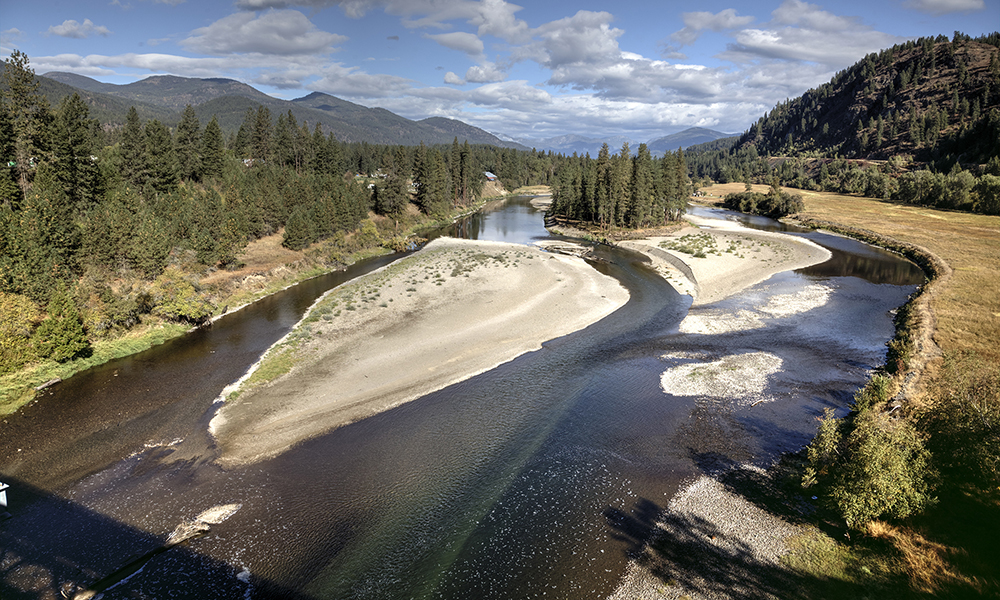
A section of the Kettle River in the British Columbia interior.
New research reveals a surprising truth about rivers: plants play a key role in shaping their very form.
Dr. Alessandro Ielpi, an Assistant Professor of Geomorphology in the Irving K. Barber Faculty of Science at UBC Okanagan, has found evidence supporting the theory that vegetation influences whether rivers flow in graceful curves or straighter paths.
“That plant life aids in shaping river landscapes is a notion that has been entertained for many years in the scientific community,” Dr. Ielpi says. “This kind of research helps pinpoint with a higher degree of confidence just how vegetation does that.”
The research, recently published in the journal Nature Communications, highlights a clear connection: rivers with healthy vegetation tend to meander more easily than those flowing through landscapes barren of plant life.
He says this discovery has significant implications for managing the environment, adapting to climate change and designing sustainable communities.
This notion is best demonstrated in the relation between the curvature of river bends—how tight any bends are—and the pace at which the river flow erodes its banks.
The research was based on a compilation of more than 50 rivers from around the globe. It used high-resolution satellite imagery of river landscapes analyzed sequentially over years.
“This difference in shape a river channel can attain has cascading effects,” Dr. Ielpi says. “Disturbances like wildfires in floodplains can disrupt vegetation patterns, leading to channels adapting their shape and potentially altering flooding patterns and ecosystem health. In a similar fashion, climate-driven changes like the greening of northern regions may alter river channels, impacting regional ecosystems and water flow.”
He explains that the benefits of healthy river vegetation extend far beyond shaping riverbeds. Healthy plant life along rivers can act as a natural defence against floods, mitigating the impacts of extreme weather events driven by climate change. This knowledge can be used to build climate-resilient communities.
Furthermore, insights from this research can inform greener urban design principles. By understanding how vegetation can influence rivers, planners and engineers can create cities that work harmoniously with natural systems, promoting healthier waterways and more livable urban environments.
Dr. Ielpi notes this research can empower communities. By understanding river dynamics, communities can take informed action for conservation and restoration efforts. This enhances recreational opportunities and protects vital ecosystems for future generations.
“The research serves as a reminder of the importance of interdisciplinary science,” Dr. Ielpi says. “By combining expertise in spatial analysis and remote sensing, ecology and environmental science, researchers gain a deeper understanding of our planet’s complex systems.”